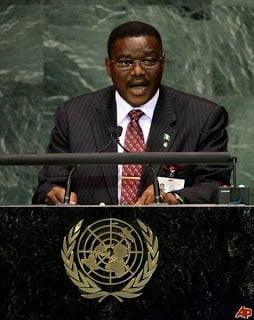Democracy & Governance
Why Nigerians should donate blood.

Nigerians are often reluctant to donate blood voluntarily. But there are good health implications of doing so. Many months ago, Health Minister, Professor Onyebuchi Chukwu, lamented that only 1,130,000 units of blood are collected annually through the various types of donations as against 1,336,000 estimates of blood units needed by Nigerians to survive. That deficit, according to him, has resulted in numerous preventable deaths especially among women and children and people living with certain diseases. “In Nigeria, we are currently faced with a situation, whereby 60% of all blood donations are from commercial donors, 30% from family replacement and only 10% are from voluntary donors”, he said.
Do you know that in Nigeria today, deaths associated with lack of blood can be avoided if only 2% of Nigerian adult population commits themselves to regular voluntary non-remunerated blood donation. We join the health minister in the call for Nigerians to voluntarily donate blood. According to medical practitioners, those who need blood transfusion include victims who have been involved in road accident and have lost blood, patients going for surgery and those with blood disorder, like sickle cell anaemia. There are also patients whose blood don’t clot (hereditary bleeding disease e. g. haemophilia) as well as children whose blood cells have been depleted by malaria.
Cancer patients also use lots of blood as well as do those with burns. Women on ante-natal or about to deliver a baby use lots of blood while statistics have indeed revealed that women use at least 53% of the blood that is collected, men only use 47%. Also, with the increase in the wave of terrorism, bomb blasts, suicide bombing, etc., there is now a serious demand for blood to treat emergency cases. Unfortunately, in our country today, less than 10% of donor population actually make voluntary donation yet several other countries within the continent like Uganda, Egypt and Kenya have embraced 100% voluntary, non-remunerated blood donation by their citizens.
Given that there is so much ignorance about blood donation in our country, there is need for the relevant health authorities to partner with the media and the civil societies on the benefit of voluntary blood donation to the lager society. That will help to allay some of the myths and misconceptions associated with blood donation, especially given the belief in certain quarters that the donated blood could be used for rituals. There is therefore an urgent need for public enlightenment to address some of the fears often bandied. Medically, people who donate blood regularly are very healthy as such habit has no side effect.
According to experts, the amount of blood usually taken from a person is only 450 mills and a healthy individual has 10-12 times that quantity while the little that is taken would be generated back to the body within two to four weeks. What the foregoing suggests very clearly is that it is very safe and indeed healthy to donate blood and we urge Nigerians, who ordinarily care for the welfare of their fellow citizens, to embrace the habit of voluntary donation so we can have a robust blood bank.
However, we note with sadness the rampant cases of patients being administered with unscreened (and often infected) blood which have sent many to untimely grave. As we join Chukwu in calling on Nigerians to make blood donation a habit, we hope the relevant health authorities will be more alive to their responsibilities.
















